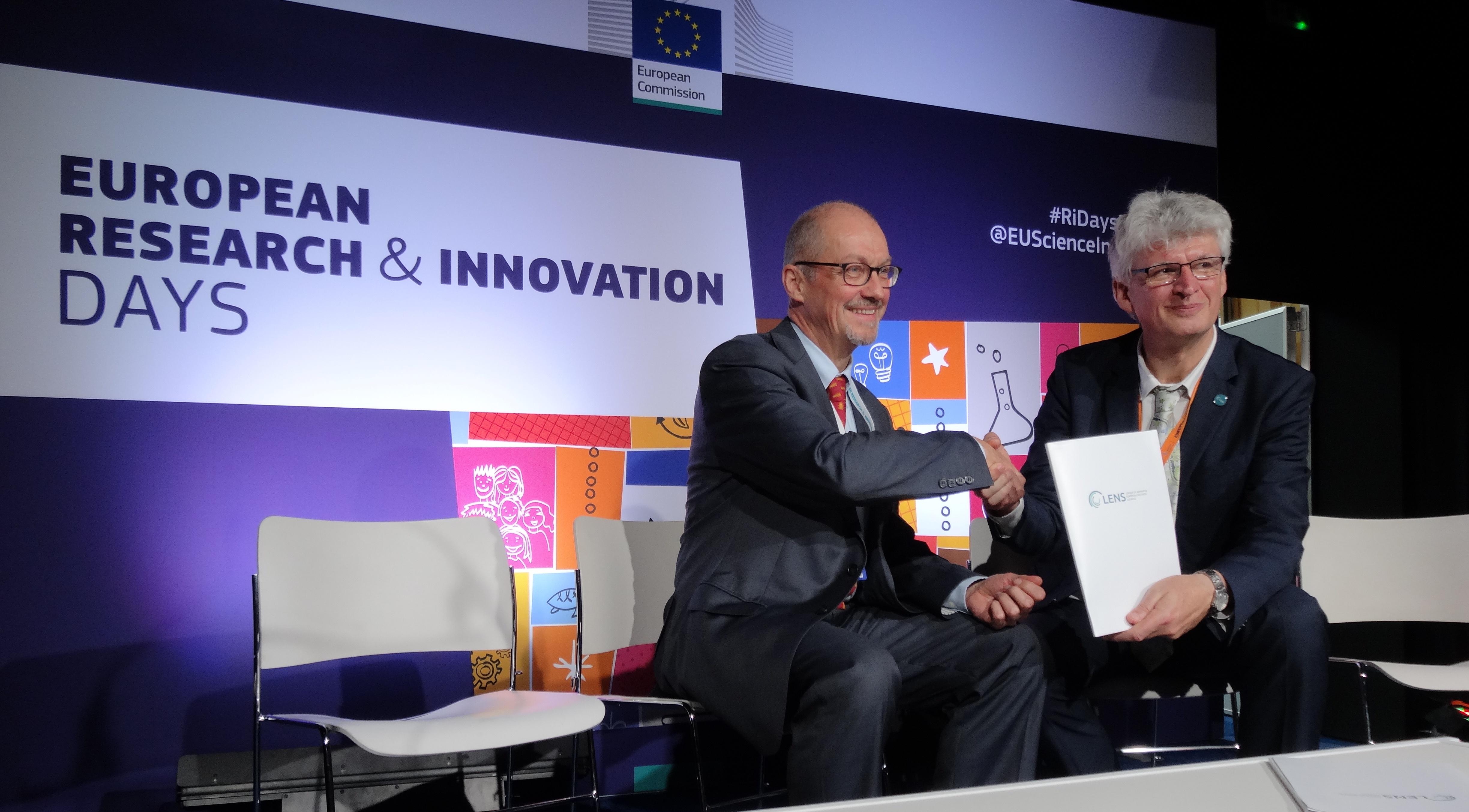LENS Horizon Europe position paper handed over to European Commission at Brussels event

BRUSSELS—The League of advanced European Neutron Sources (LENS) was represented today at the European Commission’s Research & Innovation Days in Brussels. Helmut Schober, director of the Institute Laue-Langevin and chair of LENS, moderated a panel discussion called “Let’s speak about Europe’s scientific excellence”. The platform served to highlight the benefits of EU funding to the scientists and facilities that have pushed the boundaries on research and innovation, enabling some of humanity’s most significant breakthroughs in science, technology and medicine.
SEE THE VIDEO AND MORE AT LENS-INITIATIVE.ORG
The panelists were introduced by Adam Tyson, the European Commission’s head of research and industrial infrastructures at DG Research and Innovation. “The first thing you need to do excellence science are excellent scientists,” said Tyson, by way of introducing the distinguished group. In addition to Schober, the panel included materials scientist Valeria Nicolosi of Trinity College Dublin and member of the board of the European Innovation Council; Nobel laureate in chemistry Ben Feringa of the University of Groningen; and Edith Heard, director of the European Molecular Biology Laboratory (EMBL).
LENS believes that Horizon Europe will play a key role in securing the materials research programmes of the European neutron scattering user base, the facilities they rely on and the technological knowledge base that underpins the whole enterprise.
LENS Horizon Europe Position Paper, 2019
“In the last 50 years, we have lived the most outstanding adventure that humans have ever seen, and this adventure is linked to science,” said Schober. He presented two examples, LIGO/VIRGO’s 2017 measurement of gravitational waves, which Schober described as “widening our cognitive horizon”; and the successful characterization of the protease enzyme by scientists using neutron and light sources, which helps pharmacists bring new ideas to the development of drugs that stop the propagation of deadly viruses.
 “We must fight against the skeptics,” said Schober. “To do this, we need the brightest people, stubborn and pushing things forward, and they need the best possible tools as well as an ecosystem that provides them with the right framework to do this. One of these tools is research infrastructures, which have provided these scientists with the best possible place to do their research.”
“We must fight against the skeptics,” said Schober. “To do this, we need the brightest people, stubborn and pushing things forward, and they need the best possible tools as well as an ecosystem that provides them with the right framework to do this. One of these tools is research infrastructures, which have provided these scientists with the best possible place to do their research.”
Right: Illustration of a protease inhibitor targeting the HIV virus.
Following the discussion, Schober handed over to Tyson the newly released LENS Horizon Europe position paper, which outlines LENS’ early stance relative to the new €100 billion EU research and innovation framework programme.
The paper highlights the significant contribution European neutron sources can make to achieving Horizon Europe’s goals, which are based on a new mission-oriented, “moon-shot” approach to solving society’s greatest problems: “LENS will act to reinforce the commitment of European neutron sources to serve society across all science domains. Only through boldly exploring new approaches can Europe maintain its place at the top of the world’s science pyramid, and thereby find solutions to the Grand Challenges.”

